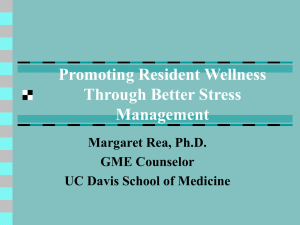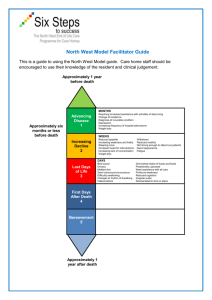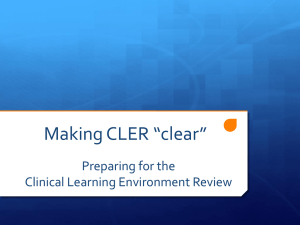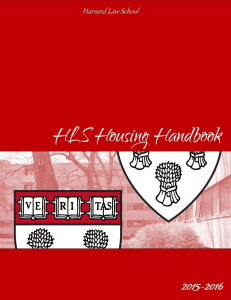Administration College Curriculum
advertisement
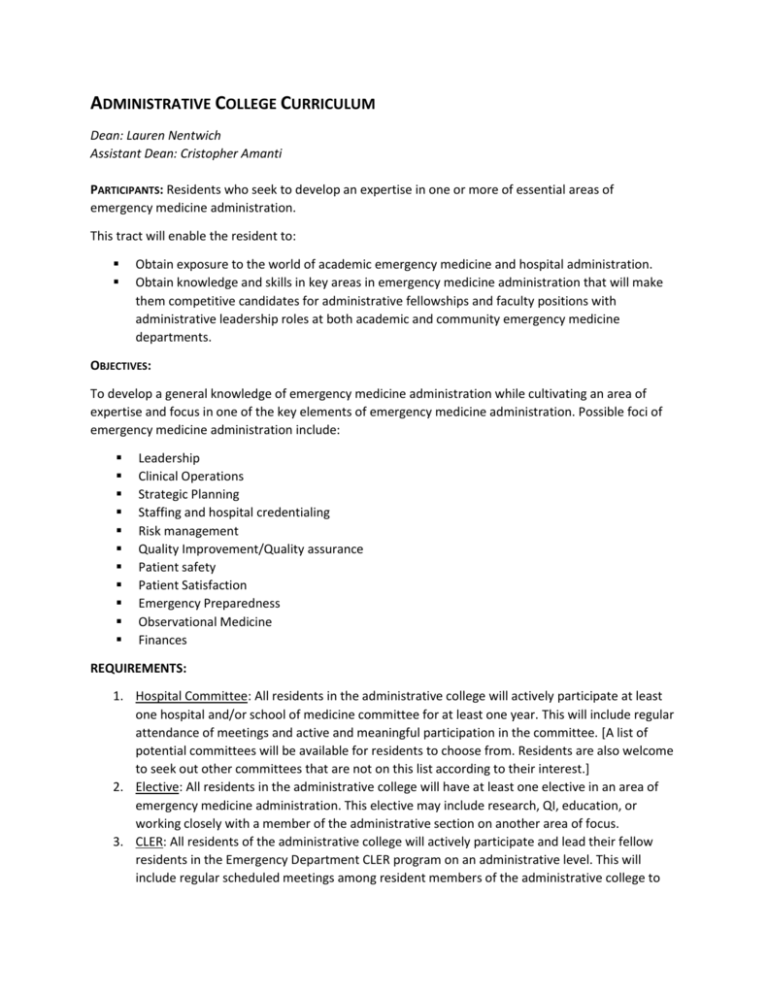
ADMINISTRATIVE COLLEGE CURRICULUM Dean: Lauren Nentwich Assistant Dean: Cristopher Amanti PARTICIPANTS: Residents who seek to develop an expertise in one or more of essential areas of emergency medicine administration. This tract will enable the resident to: Obtain exposure to the world of academic emergency medicine and hospital administration. Obtain knowledge and skills in key areas in emergency medicine administration that will make them competitive candidates for administrative fellowships and faculty positions with administrative leadership roles at both academic and community emergency medicine departments. OBJECTIVES: To develop a general knowledge of emergency medicine administration while cultivating an area of expertise and focus in one of the key elements of emergency medicine administration. Possible foci of emergency medicine administration include: Leadership Clinical Operations Strategic Planning Staffing and hospital credentialing Risk management Quality Improvement/Quality assurance Patient safety Patient Satisfaction Emergency Preparedness Observational Medicine Finances REQUIREMENTS: 1. Hospital Committee: All residents in the administrative college will actively participate at least one hospital and/or school of medicine committee for at least one year. This will include regular attendance of meetings and active and meaningful participation in the committee. [A list of potential committees will be available for residents to choose from. Residents are also welcome to seek out other committees that are not on this list according to their interest.] 2. Elective: All residents in the administrative college will have at least one elective in an area of emergency medicine administration. This elective may include research, QI, education, or working closely with a member of the administrative section on another area of focus. 3. CLER: All residents of the administrative college will actively participate and lead their fellow residents in the Emergency Department CLER program on an administrative level. This will include regular scheduled meetings among resident members of the administrative college to 4. 5. 6. 7. discuss the execution of the CLER initiative within our residency and planning for continuously meeting the goals of CLER within the department. Scholarly Work: All residents in the administrative section will complete at least one piece of scholarly work in an area of emergency medicine administrations. Possibilities include book chapters, curriculum development for resident education of emergency medicine administration, QI project, patient satisfaction project, research, oral or poster presentation at national conferences. IHI Courses: In addition to completing the IHI courses as required by CLER for all residents (Q1 101-3 & PS 100-6), the residents in the administrative college will also complete QI 104-6, L 101, and QCV 101. Meetings: All residents in the administrative college will attend all administrative college meetings during Wednesday conferences (unless working clinically, on vacation, away on elective, or if attendance will result in a duty hour violation). All residents in the administrative college will attend one interest group meeting at SAEM or ACEP in an area of emergency medicine administration that is of interest to them. All residents in the administrative college will attend one at least one ED Executive meeting. M&M and STARs: All residents in the administrative section will spend one month reviewing STARs reports in conjunction with a faculty advisor and disseminating pertinent information to the resident and faculty. They will also be responsible for helping to organize M&M, including reviewing and proper choice of cases. This month is not a full time requirement and could be accomplished during an elective month, back-up month, or a light clinical rotation. WORKING WITH OTHER COLLEGES: Projects can be in collaboration with other colleges. For example: QI or Patient safety education project with the Education College QI project in Ultrasound with the Ultrasound College Patient safety or emergency preparedness project in conjunction with the GPH College MENTORS: Each resident will identify on primary mentor within the administrative section. The resident may also seek out other mentors within the section, as well as mentors from other sections. Administrative Section Faculty: Christopher Amanti William Baker Sarah Carignan Brendan Magauran Lauren Nentwich Jonathan Olshaker Jeffery Schneider Morsal Tahouni Andrew Ulrich SUGGESTED READINGS: Fischer, Roger, William Ury, and Bruce Patton. Getting to Yes: Negotiating agreement without giving in. New York, Penguin Books, 2011. (Book) Chan Kim, W and Renee Mauborgne. Fair Process: Managing in the Knowledge Economy. Harvard Business Review, Jan 2003. (Article) Gawande, A. Personal Best: Top athletes and singers have coaches. Should you? Annals of Medicine, Oct 2011. (Article) Anderson, C. How to Give a Killer Presentation: Lessons from TED. Harvard Business Review, Jun 2013. (Article) Van Buren, Mark E. and Todd Safferstone. The Quick Wins Paradox. Harvard Business Review, Jan 2009. (Article) Walker, Carol A. Saving Your Rookie Managers from Themselves. Harvard Business Review, Apr 2002. (Article) HBR’s 10 Must Reads on Leadership. Boston, Harvard Business School Publishing Corporation, 2011. (Book)





